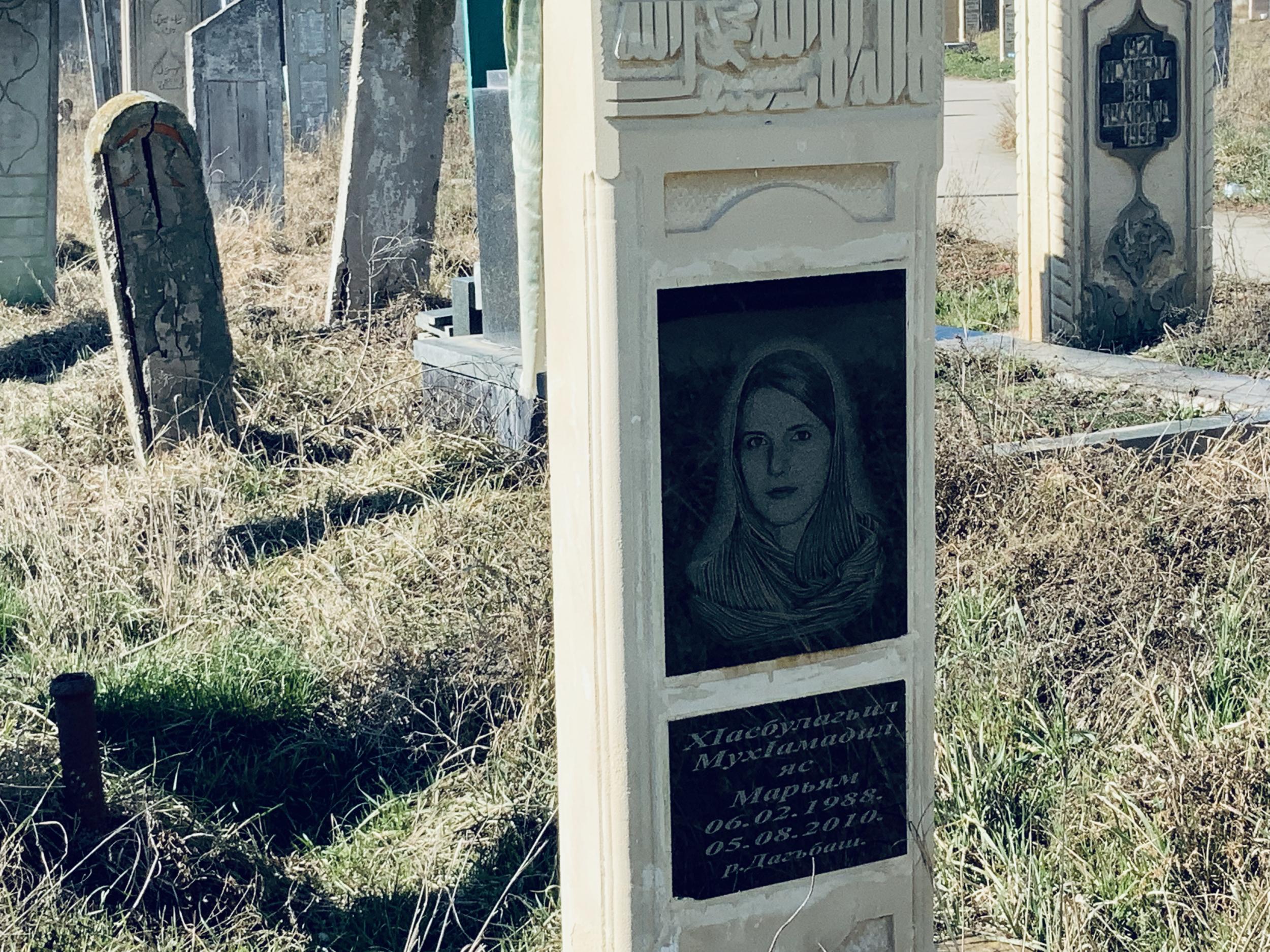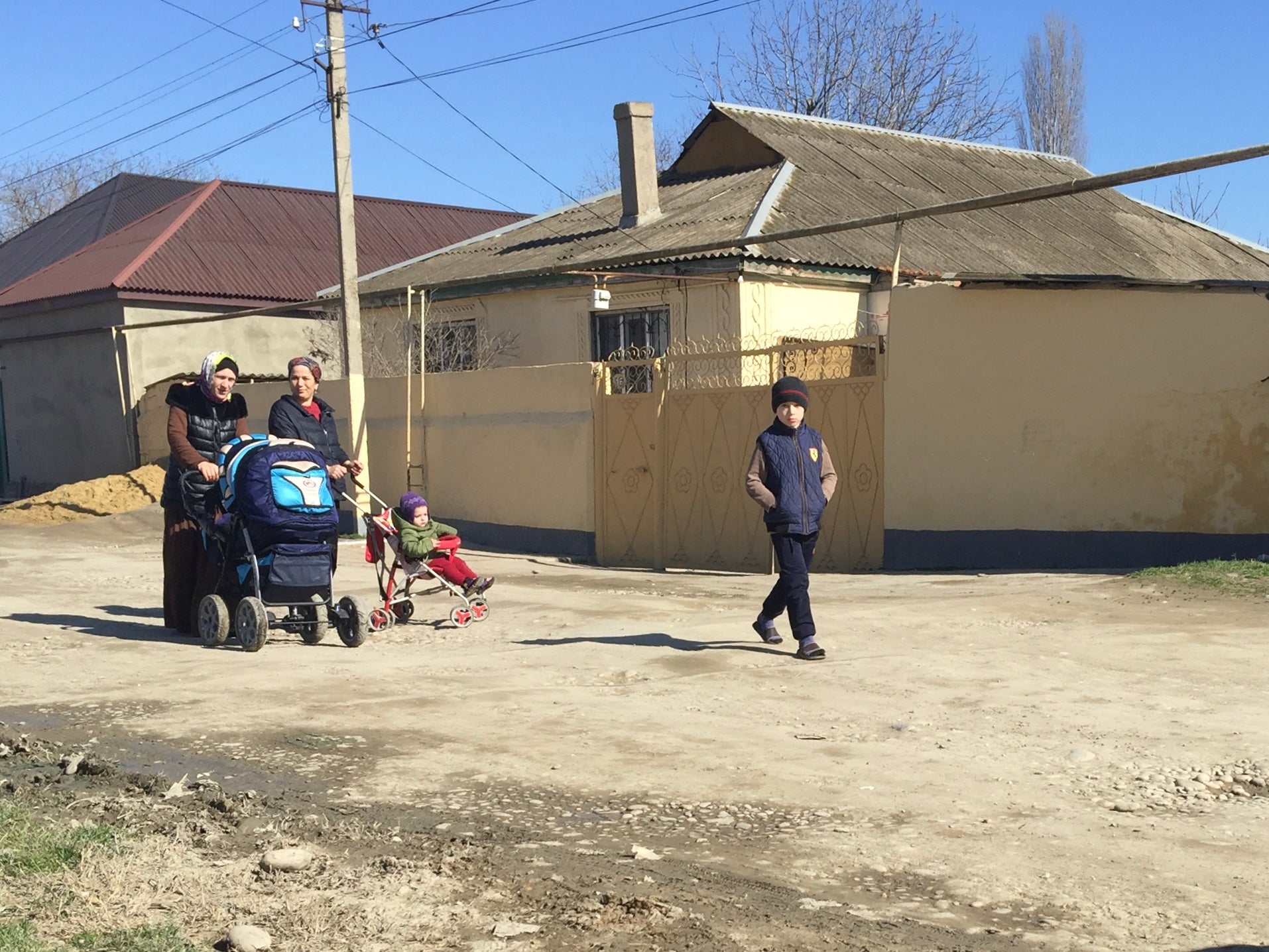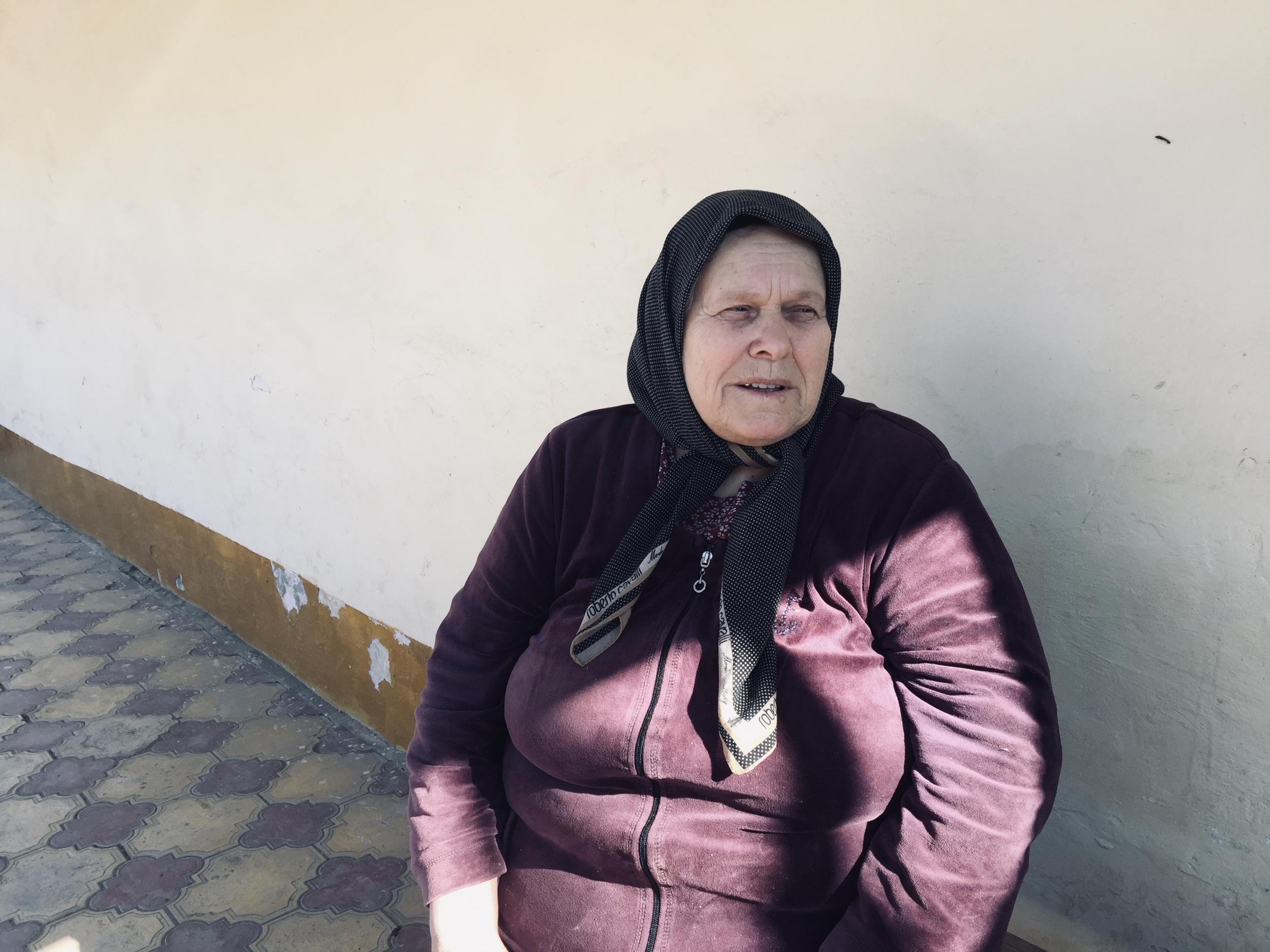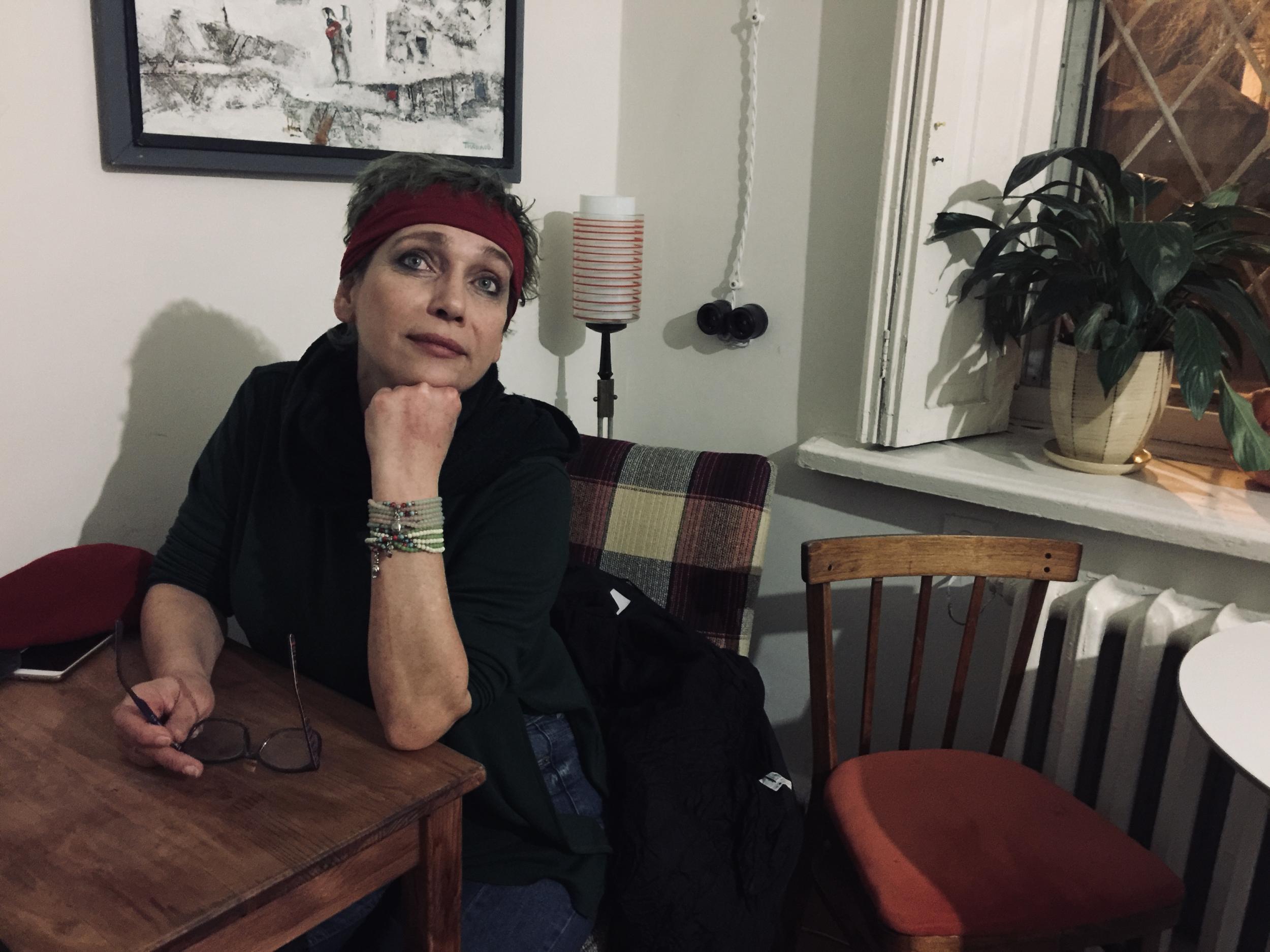A socially acceptable form of murder: honour killings in Russia’s North Caucasus
Most of the time, an individual is not acting alone, but on the authority of an all-male ‘family council’, finds Oliver Carroll


Your support helps us to tell the story
From reproductive rights to climate change to Big Tech, The Independent is on the ground when the story is developing. Whether it's investigating the financials of Elon Musk's pro-Trump PAC or producing our latest documentary, 'The A Word', which shines a light on the American women fighting for reproductive rights, we know how important it is to parse out the facts from the messaging.
At such a critical moment in US history, we need reporters on the ground. Your donation allows us to keep sending journalists to speak to both sides of the story.
The Independent is trusted by Americans across the entire political spectrum. And unlike many other quality news outlets, we choose not to lock Americans out of our reporting and analysis with paywalls. We believe quality journalism should be available to everyone, paid for by those who can afford it.
Your support makes all the difference.On the sweltering August week she was to die – choked to death by her own uncle – Mariam Magomedova had returned home to the village of Nechayevka in Dagestan, to celebrate her cousin’s wedding.
Relatives on her mother’s side recalled their joy at seeing the tall, beautiful, serious 22-year-old – practically everyone remembered her thus – on a rare trip back from Moscow. They had even helped her buy the ticket home. They couldn’t have known what lay in store. It was as much of a shock to them as it was to her.
The gods never looked out for Mariam, says her aunt, Patimat Abdulmuslimova. The girl’s terrible run of luck started two years before she died, when she was hitched against her will to a cousin 14 years her senior. The wedding went ahead regardless of her protestations; joyless, and with a lot of crying. There was a terrible omen that day, says Abdulmuslimova, when the wedding party crossed paths with a funeral procession.
Nobody in Nechayevka knows quite why Mariam Magomedova was killed. There were certainly lots of stories, recalls Umarazat Magomedova, head teacher at the local middle school (no relative). The girl was already divorced by this point, the teacher says, but for some reason relatives on the father’s side were animated by SMS messages she may or may not have exchanged with a man. No one saw those messages, or could even say what they contained.
When it came to court, the uncle offered a different story: Mariam had been seen wearing short sleeves and only knee-length dresses. There were rumours about immorality – only none of them were actually true.
For two weeks, the father’s side of the family kept quiet about their role in Mariam’s disappearance. It was only when the body was found, complete with the scarf used to choke her, that the truth emerged. But that was only the start. It took Mariam’s mother four years to put her daughter’s killer in prison.
Every step of the way, the authorities obstructed her. A suspicious death report took weeks to be filed. The investigation was drawn out for a year. It was thrown out before reaching the district court. After great scandal, the case went to court, but the uncle was acquitted. With the help of NGOs and journalists, that verdict was quashed, and a re-trial ordered. Finally, with the writing already on the wall, the uncle admitted his guilt, and was sentenced to seven years, just above the minimum tariff.
“Eventually - we got there,” says her aunt Abdulmuslimova. “We were motivated by her beautiful eyes. I still see them every day.”
They no longer speak to the father’s side of the family — not, she says, after they behaved “like such animals.”
The story of Mariam Magomedova’s death is far from an isolated incident in Russia’s predominantly Muslim North Caucasus. But it is worth telling in detail for two reasons: first, because it went public, and second because it was so doggedly pursued in the courts amid obvious resistance from authorities.
It is far more usual for such matters to stay well hidden, says the human rights lawyer Yulia Antonova who in December 2018 co-authored - with Saida Sirazhudinova - the first major study on the issue. Families across the region are much more likely to close ranks, Antonova says, with local police, doctors and lawyers helping them to cover their tracks. If things ever reach court, relatives usually request hearings to be carried out in private.
The taboo nature of the issue also means we have little idea of the true scale of the problem. The 2018 report documents at least 36 cases over five years from 2012-17, but the numbers include only definite honour killings – ones that are documented and cross-referenced. Many cases of women “leaving” to Moscow or being involved in car accidents may have had uglier explanations.
“The UN estimates the real numbers may be 10 times higher,” agrees Antonova. “We may be looking at about 500 deaths in those five years alone.”

In general, suffocation or stabbings are the two main methods of choice, but shootings, poisons and even axes have been reported too. Most of the time, an individual is not acting alone, but on the authority of an all-male “family council”. Sometimes, the close family may be against the idea, but are bulldozed by a distant relative wanting to use the killing to enhance social or, just as often, professional status. As far as the “crimes” are concerned, these can range from adultery to simple rumour of immoral behaviour. In one case from 2015, an Ingush girl was suffocated to death by her uncle after he caught her smoking a cigarette.
According to Svetlana Anokhina, a local journalist who has helped several girls from the North Caucasus to safety, men often hide behind twisted ideas of glamour and honour to justify their crimes. The absurdity of the killings is no guarantee against their social acceptability, she says: "We need to untangle the concepts. These are not honour killings, but cold-blooded murders, committed by people in positions of trust. It’s murder committed when all the guards are down.”
The banner of “honour killing” has also been used to hide from some very dishonourable practices from robbery through to rape and incest. One particularly disturbing case from 2013 involved the killing of a 14-year-old girl. Her father, referred to in legal documents as Abdula A told investigators he had killed her in "a fit of rage" after finding out about her “immoral” behaviour. The reality of what actually stood behind it – two years of his raping and abusing her – only emerged after an aunt came forward to say the girl had confided in her. Abdula was eventually sentenced to 12 years in prison.
The region’s corrupt law enforcement system — serviced by money and clan loyalties — adds a special burden on its women. Salimat Kadyrova, the lawyer who represented Mariam Magomedova’s grieving mother through court, says she still remembers how her killers seemed to enjoy special protection from the police. The case was filled with “dirty lies”, she says.
A flash of anguish appears on the lawyer’s face. She looks into her tea. It is a tough job at times, she admits; enough to make you doubt the morality of the nation. She had just been in court representing another victim, a woman from from Novochurakh, a mountainous village 20 miles along the road from Nechayevka. There was nothing nice about the story. The woman, a mother of two, had been gang raped by nine men from the village, who filmed the outrage and distributed the video over social media. Not content with their crime, the men then went to the victim’s family, and lobbied for her killing, saying she had brought shame on their honour.

The family declined to act, and the woman — thankfully — is still alive. But it is not much of a life. Ever since her attack, the victim has lived under a self-imposed house arrest, afraid of coming across her attackers again. And it is unlikely the legal process will get the woman the justice she deserves. The ringleaders of the rape belong to an influential local mafia family, and all but one have already been released.
“These guys are used to getting their way,” says Kadyrova. “Not even God can stop them.”
For some, religion – with its influence on patriarchy and conservative traditions – is the best hope to effect change in the region. Indeed, since at least 2013, the official position of the main clerical leadership has been against honour killings, insisting they are incompatible with sharia law. But in some cases, religious teachers have on the contrary played into narratives of honour and local traditions.
The preacher at the local capital Makhachkala’s main Juma mosque, for example, offered only a lukewarm criticism of honour killings when The Independent called in.
Traditions were what keep Dagestan from “falling under moral destitution,” Imam Zainulla Atayev said: “We don’t believe in same-sex marriage and we don’t believe in sex with donkeys.”
Has he come across any cases of honour killings in his own congregation? He insists not. “Certainly not among our people. Religious people would never have such daughters.” What if the girl was a prostitute, or of loose moral values? “I’ve heard of fathers stabbing their daughters over that, yes, but it’s always in a fit of rage…” Has anyone asked your advice about what to do? “Well… we … always try to calm the sides down.”
House No 15, a hipster cafe located about a mile and a half from the mosque, would seem to have little in common with austere religion or traditionalist Dagestan. Picture a Hackney cafe with bearded 20-year-olds, oat-milk lattes, coloured hair, piercings, tattoos, the latest iPad pros, and the sounds of Althea and Donna’s “Uptown Top Ranking”. Imagine women smoking and discussing theatre festivals. Any one of them would fall under beyond the knee-length skirt “indecency” rule that according to one story cost Mariam her life.
But even here, in the heart of Dagestan’s Bohemia, a survey of opinions returns unexpected results.
Only one woman in her twenties rejects outright the idea of honour killings. The other dozen express neutrality – or even agreement “in some circumstances”.

One young man, dressed in hipster black, says he is genuinely worried about the “decline in Dagestan’s moral values”. Before you could steal brides, he says; take away their honour and she’d be yours: “Now she can go back without the shame and neither her brother nor father will do anything about it!”
In Nechayevka, villagers insist the region's traditions of blood revenge still had a role to play in “keeping women moral.” But Mariam’s death had united them against the idea of “untimely, disgraceful, underserved” killings. Never again could it be used for something “so obviously unproven,” the villagers said. They say they made sure Mariam’s mother would be allowed to rebury her daughter in the first row of graves at the village cemetery – right near the gate – so no one could ever forget the shame.
There, an inscription written on the back of the dramatic gravestone reads, in the local Avaric language: “Killed because of gossip”.
A few rows back from the new grave, on the far edge of the cemetery, are another half-dozen unmarked mounds. The local headteacher Magomedova says she doesn’t exclude the possibility they may be hiding similar stories.
Join our commenting forum
Join thought-provoking conversations, follow other Independent readers and see their replies
Comments